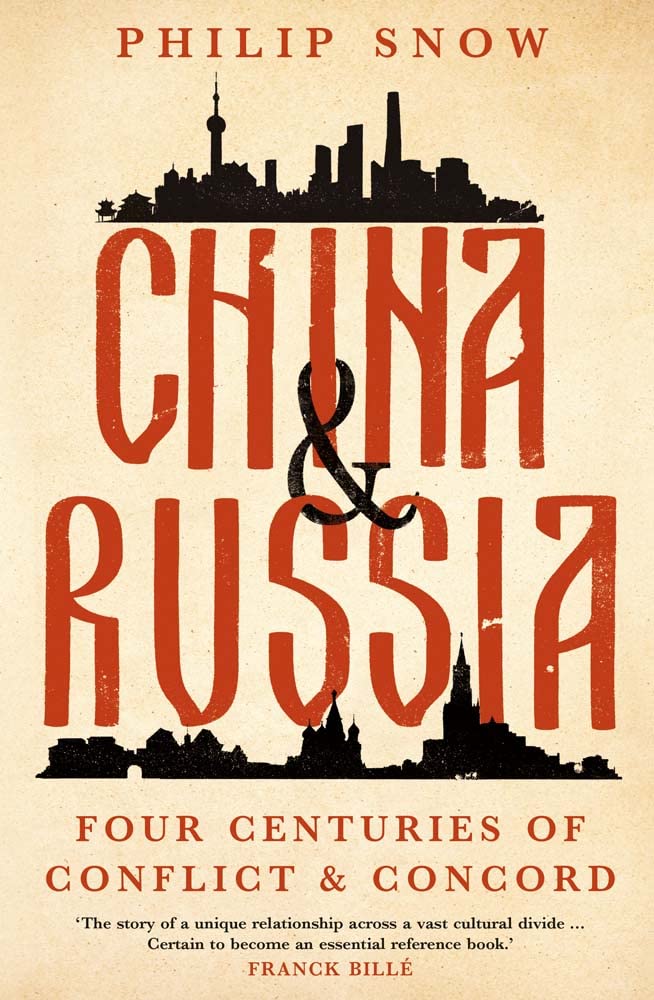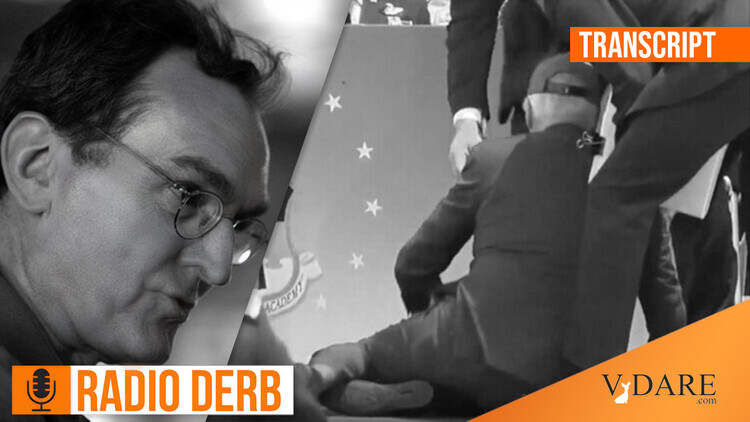Puzzling for Western Civ. May was a deeply unproductive month. I didn’t travel anywhere, didn’t get much reading done, fell behind on home repairs. What did I do? A jigsaw puzzle.
Actually I need the present continuous tense there: I’m still doing the durn thing.

It’s the second of two puzzles that were gifted to me at Christmas by a friend. The first was a mere 1,000-piecer; I knocked it off between breakfast and lunch one morning. (Wel …)
This second one is more of a challenge: 3,000 pieces and artfully difficult. ”Skill level: Intermediate” says the Amazon page. I dunno; ceteris paribus it should be only one-third as difficult as the 9,000-piecers I’ve done, but it seems harder than that, especially when Mimi’s on the prowl.

Gotta see it through, though. This puzzle is made in Turkey. It’s the end of May as I write, and some of us haven’t forgotten Terrible Tuesday. And then, Gallipoli. There are old scores to be settled here.
The seasons of AI. In a segment on Artificial Intelligence in my Diary last month I mentioned an article I wrote for a student magazine back in my college years, the mid-1960s.
I can’t remember the subject of that article. With one exception, I remember nothing of what I wrote. I seriously doubt there was anything much worth remembering. I was introverted, unworldly, and not terrifically smart—certainly no Frank Ramsey.
The one tiny thing I can remember is that I predicted AI+, the form of intelligence that doesn’t just mimic the human variety but goes beyond it to superintelligence. I wrote something like: ”In the near future, perhaps before the end of this century, we shall be sharing our planet with beings more intelligent than ourselves.”
I went on to lament that I had lost the article long since, and that the only sign it might have survived the decades was a suggestive reference in the online catalog of Harvard Divinity School Library, a reference that did not get me to the article itself online.
A kind reader who lives up there in Massachusetts hiked over to that library, recovered the lost article, and sent it to me. I have transcribed it onto my personal website. Many thanks to that reader.
And yes, it makes embarrassing reading now. As I wrote in the introduction to that transcribed version: ”Not many of us are as smart at age 21 as we think we are.”
The AI reference is in there, though.
”In the nineteenth century the problem was that God was dead; in the twentieth century the problem is that Man is dead.” (Erich Fromm.) The problem of the twenty-first century will be the death of science, in the sense of man’s achievements through science. Advances in automated labour and information-processing will result in men having nothing much to do but gaze in awe and incomprehension at the works of the superior intelligences we are creating.
Uh-huh.
I can now, however, at least put my college blatherings in social-historical context. I was writing towards the end of an AI summer—the very first such AI summer.
Thinking back, I can recall some of the signs. The 1960s AI summer was dominated by hopes for machine translation of human languages. I heard graduate students in the math department chattering enthusiastically about it.
The hopes faded, and that AI summer was soon followed by an AI winter.
The first AI winter … took place between 1974-1980, after a nearly 20-year period of significant interest during what some have called AI’s Golden Era. Interest in AI wouldn’t be revived until years later with the advent of expert systems, which used if-then, rule-based reasoning. [AI Winter at techtarget.com.]
Those expert systems ushered in another AI summer from 1980 to 1987. That in turn was followed by a second AI winter, 1987-1994.
That AI winter did not immediately give way to a full AI summer. Research continued through the late 1990s and the 2000s, but under a cloud of disappointment just because of those previous winters and a general feeling, particularly among funders, that AI had been over-hyped. The days didn’t really start getting longer until the founding of OpenAI in 2015.
And now it’s full summer again. The question for discussion is of course: Are we headed towards another AI winter?
An ontologist writes. Early this month I received my first-ever email from an ontologist.
The fact of my correspondent being an ontologist surprised me. Up to that point my sole acquaintance with the word ”ontology” had been from very occasional encounters in writings about philosophy, where it had the meaning given in my 1971 Oxford English Dictionary:
ontology … The science or study of being; that department of metaphysics which relates to the being or essence of things, or to being in the abstract.
I should explain before proceeding that my brain is quite strongly resistant to academic philosophy. I normally read philosophy only when it’s embedded in some biographical or social matter. I expressed myself on this at length in the opening paragraphs here.
I did not know, but have since learned, that at some point when I wasn’t paying attention ontology was embraced by Information Science and General System Theory. It is now so down-to-earth it has been standardized by the International Standards Organization.
Basic Formal Ontology (BFO) is a top-level ontology developed by Barry Smith and his associates for the purposes of promoting interoperability among domain ontologies built in its terms through a process of downward population. A guide to building BFO-conformant domain ontologies was published by MIT Press in 2015.
Got that? There’ll be a quiz period afterwards.
 My early-May email correspondent was none other than that same Barry Smith, alerting me to a book he published last year, cowritten with a German scholar and AI entrepreneur named Jobst Landgrebe: Why Machines Will Never Rule the World. Prof. Smith very kindly sent me a free copy of the book.
My early-May email correspondent was none other than that same Barry Smith, alerting me to a book he published last year, cowritten with a German scholar and AI entrepreneur named Jobst Landgrebe: Why Machines Will Never Rule the World. Prof. Smith very kindly sent me a free copy of the book.
I have read it, pushing hard all the way against that aforementioned resistance to abstract philosophizing. The erudition on display here is formidable, far beyond any critique I could post that would be worth your time to read.
The authors state their main argument most briefly in Chapter 9, Section 9.4.1:
The main thesis of this book, once again, is that the human mind-body continuum, because it is a complex system, cannot be emulated by a universal Turing machine. A large number of arguments against the feasibility of AGI have of course already been provided in the philosophical literature on the computational theory of mind.
What is ”AGI”? There are key distinctions to be made.
- AI is Artificial Intelligence, the ability of computers to do basically intelligent stuff: play chess, recognize faces, translate languages,…
- AGI is Artificial General Intelligence, the ability of computers to do all that human minds can do: play chess etc. but also drive cars safely on roads as they currently exist, perform satisfactory social interactions, initiate research projects, experience emotions, reflect on their own thoughts,…
- ASI, sometimes written as AI+, is Artificial Super-Intelligence: the ability of machines to cerebrate at some level higher than what human beings are capable of. That is what I was predicting back in 1966, and the basis of all the scary doom scenarios.
Smith and Landgrebe are arguing against AGI, and by extension also against ASI. They have no problem with AI and foresee its development into many useful areas: an increase in driverless cars, for example (Section 13.1.1), but only after ”a cascade of changes in the material world in which driving occurs.”
Whatever sector we choose, the use of AI in the real world is subject to tight limits. Whenever there is a need for adaptive cognitive behavior in an open context, whenever the sensorimotor requirements of human dexterity are demanding, as in any kind of surgery, or musical or theatrical performance, or in social tasks such as accompanying schoolchildren to provide for protection against bullies, or whenever spontaneous use of language (both natural and mathematical) is involved, attempts to replace humans by machines will quickly lead to unusable results and will in due course be abandoned. (13.3.)
 I am going to give the book a second reading just as soon as I’ve figured out where these weirdly speckled pieces go; and I have asked my local library to get me, on inter-library loan, Thurner et al.’s Introduction to the Theory of Complex Systems, which Smith and Landgrebe often cite. [Added May 31st: I just got a notification email from the library that it’s arrived.]
I am going to give the book a second reading just as soon as I’ve figured out where these weirdly speckled pieces go; and I have asked my local library to get me, on inter-library loan, Thurner et al.’s Introduction to the Theory of Complex Systems, which Smith and Landgrebe often cite. [Added May 31st: I just got a notification email from the library that it’s arrived.]
Annual checkup. May is the month I get my annual checkup from our family physician. With a head full of AI notions, I’m sorry to say I dumped some of them on him.
The way the annual checkup works nowadays is, before feeling for lumps and probing into your orifices, the doctor sits down with you and interrogates you with a lo-o-ong list of questions about your lifestyle. How many alcoholic drinks per week? Do you worry about falling? Get depressed? Have to take bathroom breaks in the night? Exercise regularly? … It goes on and on.
My own doctor, a sensible and well-read fellow who I like a lot, broke off from this questionnaire to shake his head and mutter: ”I hate this. Cookie-cutter doctoring!”
So why did he do it?
He: ”It’s the Group. They set the rules. But I hate it. I want to engage with my patients, not be a data-collection clerk.”
Me: ”Oh, you won’t have to do this for long. They’ll figure a way for AI to do it.”
He did not take that well. ”I hope I’m retired before AI takes over…”
Gold, silver, and rhubarb. As explained above, I haven’t gotten much reading done this month. I did, though, read the first one-and-a-half chapters of Philip Snow’s China and Russia.
 Chapter 1, titled ”Worlds in Collision,” describes the first encounter between the modern Russian state in its youth and China at the turn of the dynastic cycle. It culminates in the Treaty of Nerchinsk (1689), which first defined a Chinese-Russian border in Siberia.
Chapter 1, titled ”Worlds in Collision,” describes the first encounter between the modern Russian state in its youth and China at the turn of the dynastic cycle. It culminates in the Treaty of Nerchinsk (1689), which first defined a Chinese-Russian border in Siberia.
From a broad historical point of view Nerchinsk was a win for China, a loss for Russia. Had the Russians moved into Siberia in force a few decades earlier they might have won a much better deal. The Ming Dynasty, which fell in 1644, was ruled by ethnic-Chinese emperors and officials. It was not much interested in Siberia, at any rate north of southern Manchuria, and was anyway far gone in institutional decay.
Probably the Ming would not have put up much resistance to Russian expansion into Siberia and Manchuria. The dynasty that succeeded the Ming in 1644 was, however, run by ethnic Manchus who were determined to preserve their ancestral lands; and they were flushed with victory after overthrowing the Ming. The border decided on at Nerchinsk was not one of the Russians’ choosing.
Philip Snow writes well, with an occasional seasoning of sly humor that I like. Of Russian-Chinese trade around 1670, for example, he writes:
Much of this business consisted of the familiar exchange of Siberian furs for Chinese textiles; put another way, of Russian raw materials for the sophisticated products of Chinese industry.
Some things just don’t change.
He also has an eye for oddities. Of the opening of formal Treaty negotiations outside Nerchinsk he tells us that:
Outside the pavilion their [i.e., the Russians’] soldiers paraded with drums, fifes, and bagpipes (the last a contribution of Scottish mercenaries).
Was that the first time the bagpipes had been heard in Siberia, I wonder?
The commercial importance of rhubarb is curious, too.
In 1698 [Tsar] Peter re-issued the longstanding ban on private import of highly prized goods like gold, silver, and rhubarb …
Rhubarb, wha? Oh:
Valued throughout seventeenth-century Europe for its supposed effectiveness as a purgative in treating diseases of the liver, spleen, kidney, and general frenzy … it could be re-exported at great profit to Russia’s western neighbors.
This is the kind of history writing I enjoy, full of weird and colorful little details like that. I look forward to reading more, when I’ve made some progress on the totally black regions of this jigsaw puzzle.
Britain’s Coolidge (cont.). In my December 2019 Diary, looking forward to the 2020s, I naturally had things to say about the 1920s.
 One of those things was a segment in praise of Stanley Baldwin, right, Britain’s Prime Minister from mid-1923 to mid-1929 (except for a few months in 1924). I tagged Baldwin as ”Britain’s Coolidge.” Like Silent Cal, he ruled mostly by inaction; although, also like Cal, when vigorous action was truly necessary, he was up to it.
One of those things was a segment in praise of Stanley Baldwin, right, Britain’s Prime Minister from mid-1923 to mid-1929 (except for a few months in 1924). I tagged Baldwin as ”Britain’s Coolidge.” Like Silent Cal, he ruled mostly by inaction; although, also like Cal, when vigorous action was truly necessary, he was up to it.
Unjustly, Baldwin is held in low esteem nowadays, for reasons I gave in that segment. I was therefore pleased to see a well-written rehabilitation of him this month by Dominic Sandbrook, May 22nd at Unherd: Britain needs more Stanley Baldwins
To some of his better-remembered contemporaries, Baldwin’s success was utterly baffling. Churchill, when playing chess, would gesture at his opponent’s pawns with the words: ”Bring out your Baldwins.” Orwell said that he was ”simply a hole in the air.” They were both wrong. Voters in the Twenties and Thirties understandably shrank from the reckless, belligerent adventurism that had sacrificed so many lives at Gallipoli. [!—J.D.] Most voters were more like Bilbo Baggins, the very personification of Baldwin’s England, who made his first appearance during the great man’s final months in office. ”We are plain quiet folk and have no use for adventures. Nasty disturbing uncomfortable things! Make you late for dinner!”
Why do Anglosphere national leaders of past decades seem so much better than the fools, poseurs, and grifters we have to put up with today?
What’s driving Open Borders? My May 26th podcast was for some reason a particularly fertile generator of Diary segments. (Was that because for the first three weeks of the month I was too busy with this damn fool jigsaw puzzle to record things for my Diary? No! Absolutely not!)
First off, a reader emailed in to add three more items to my list of candidate explanations for what is driving the open borders movement. His three additions were ideological, based in very brief on:
- White guilt.
- Nonwhite revenge.
- Jewish anti-Gentilism.
That reader has a point. I didn’t explicitly name ideology as the underlying factor. I probably should have done; but in my own mind I have folded the ideological issue into my pet theory of a Cold Civil War—two big blocs of white people who can’t stand the sight of each other—number six in my list of candidate explanations.
In the left bloc, anti-whiteness is a major ideological motivation. This is odd because both blocs consist, as I just said, of white people. (Although the left bloc brings in nonwhites as auxiliaries to—as I like to say—dig field latrines and feed the horses.)
So do those whites in the left bloc hate themselves, and their white relatives and friends? In a few really nutty cases, possibly; but by and large, I don’t think so. They hate those other white people. The human mind is perfectly capable of inconsistencies like this. On ideologically charged topics they are in fact the norm.
And yes: old-style leftist Jews like Susan Sontag, Vivian Gornick, and Merrick Garland (originally Garfinkel) might, in their minds, simplify the phrase ”those other white people” all the way down to ”those Gentiles.”
(Wait: has Derb finally gotten the Jew Thing? No, sorry. After twenty-some years of seeing commenters at Unz.com sneer at me for my cowardly refusal to Name The Jew I still don’t know his name. Sammy? Benny? Shlomo? At this point I guess I’ll never know it.)
Don’t we in the right bloc of the Cold Civil War likewise hate the lefties? Nothing like so much. As the saying goes: We think they’re wrong; they think we’re evil. And we don’t blame their errors on their whiteness.
Stephen Miller on the border. For an impassioned and informative take on the border by a guy who knows plenty about the situation, check out Megyn Kelly’s interview of Stephen Miller a few days ago. It runs from 7m10s to 49m45s here.
At 18m00s in Ms. Kelly poses the question I was pondering in my podcast. My transcription:
MK: Is the goal just to create more Democratic voters? What is it? Is it bleeding-heart liberalism? Why would they be allowing this kind of crisis to emerge from our South and now be bused up to the North, such that virtually all these major cities are going to feel the pain?
SM: People ask me this question a lot and I’ve reflected on it a great deal, because people want to know how’s it possible that an entire administration and all the members of Congress who support that administration and all of the outside groups that support that administration could be so willingly complicit in a policy that’s yielding so much human misery.
You have human trafficking, sex trafficking, and labor trafficking—as even the New York Times documented—particularly with minors, on a scale that has never been witnessed before. Hundreds of thousands of minors have been trafficked into the country.
You have the fentanyl deaths setting records year after year. Families being separated in a permanent and irrevocable way where the only way to [inaudible] your loved ones is at a cemetery, at a graveyard.
And then you have gangs that have operational control of our territory, that are abusing people and murdering people on both sides of the border; the destruction of the labor market for the working class and the working poor; and the decimation of our healthcare system and our education system, to name but a few social ills.
And I think the answer is exactly what you said, and it’s very straightforward.
California was once the most conservative, free state in the country. If you wanted to live the American dream you wanted to get your family in the station wagon, drive across country, and just strike out—see if you could start a small business or get a good job, or just earn a good living—you went to California. That’s what you did.
And this is the state that not only elected Reagan governor but also voted in presidential elections for conservatives for national office for almost the entirety of the 20th century, up until 1992, and that was the tipping point. And from 1992 until today only Leftists for the highest office in the land.
And the reason for that is because mass migration turns politics Leftward. And there’s a lot of reasons why.
I mean, one is that people who come from countries that have no history of limited government and no experience of limited government don’t find that to be intuitive. So that’s one reason: the actual voters themselves they would say, ”Well, why wouldn’t I vote for higher taxes on someone who’s not me to give services to someone who is me,” right?
That’s intuitive. It’s very intuitive to say: ”Those people who are richer than me so I’ll tax them more, and then you’re going to give me more money,” right? That’s intuitive.
It’s not intuitive what we have, or what we have had in America, to say: ”If more people who aren’t you also have freedom then they will also be productive and they will also create more jobs, and then those jobs will pay higher wages.”
But there’s a second theory in fact that pulls politics Left, which is the destruction of the middle class.
When you have good, high-paying middle-class jobs, that forms the center of a conservative society: a strong family and a strong community where people are able to get a job that can pay a living wage, that can support a family, where you can have—if you want to—a one-parent-working home, or if you want to a two-parent-working home, but either way you’re financially secure. And you have a good education system and a good healthcare system.
When you completely destabilize the labor market and the social-safety net, people then begin demanding more and more government services because the jobs aren’t paying enough, so you need more Earned Income Tax Credit and you need to have more food stamps. You need to have more public housing.
And the education system can’t keep up, so you’ve got to keep plowing more and more money into that.
And nobody has health insurance! I mean, how many years have we heard, Megyn: ”There’s thirty million people without health insurance! We need socialized medicine, we need socialized medicine!”
The vast majority of people in this country who don’t have health insurance are not citizens of this country. There are many millions of Americans without health insurance, to be clear, and they should get it, and we should make sure they do have it; but the vast majority of people who don’t have insurance of any kind, in any way, in any shape or form whatsoever, are not U.S. citizens. But that’s used by political parties to demand free government services.
So an open border both imports the voters who will vote for one party and one ideology, but it also changes the political landscape of an entire community.
So you end up with the Manhattanization of America, where you have these very large cities where nothing works, nothing is functional, nothing is safe, nothing is efficient, and the solution is always going to be, you have to tax more and spend more.
MK: It’s bleak, Stephen. It’s so bleak!
Yes it is, Megyn.
My first house. Also in my May 26th podcast I noted some anniversaries that week, then added:
May 24th marks yet another anniversary, but this one just personal. I’ll cover it in my May Diary next week, unless I forget.
I didn’t forget. May 24th was, for me, the 75th anniversary of a key life event.
Psychologists tell us that our earliest permanent memories form between ages 2½ and 3. On May 24th 1948 I was ten days short of my third birthday and so at the high end of that memory-forming zone. And yes, I have a memory: my first house.
My parents had married in 1942. My sister was born the following year. That was of course during World War Two. My father, who was too old for military service, had a good job with the Air Ministry doing quality inspection on the warplanes coming out of U.K. factories. My mother was a professional nurse; but nursing was wretchedly badly paid in those days. Still, with Dad’s wages they weren’t too badly off.
The war ended shortly after I was born. Dad left, or was retired from, the Air Ministry. He always regretted that. Twenty years later, signing off on my applications for student support grants he would give his occupation as ”Retired civil servant.”
So there was Dad in his mid-forties, with no marketable skills, entering a job market swelling with younger men demobilized from the military. It didn’t help that Dad was one of the Awkward Squad: of a prickly, contrary character, unpunctual and disinclined to follow rules—not a model employee. By 1948 we were seriously poor, living in shabby rented rooms in the back streets of our small provincial town.
Britain’s postwar Labour Party government, however, had launched a major public works program. It concentrated on housing, a lot of which had been destroyed in the Blitz. On the south side of our town a whole estate of pleasant suburban-style semi-detached houses was being built for public rental on what had formerly been open countryside. My parents got on the waiting list and… waited.
In May 1948 their number came up. They got a new-built house on that estate. On the 24th we moved in. I remember.

Me and my sister on the front step at 62 Friars Avenue, mid-1950s.
Mum and Dad must have been thrilled to get a house of their own; yet oddly, I recall mostly negativity from them on that day. Mum grumbled about the interior color scheme (the woodwork was painted a sort of fecal brown); Dad objected to builders’ waste left in the back yard. I don’t recall my sister’s reaction.
Of mine, I mainly remember being fascinated by the clothes-drying rack suspended from the kitchen ceiling. It had long wooden slats to drape the clothes on and a pulley-and-cleat arrangement to raise and lower it.
I have documentary evidence of the event. Our house was owned by the town. My parents paid a weekly rent of nineteen shillings—$3.80 at the then-rate of exchange. And there’s our first payment, May 24th.
Seventy-five years ago and I remember. Good grief!
Those Whitsun Weddings. And one more on the May 26th podcast.
I usually close out with a brief snippet of music. May 26th, however, looking forward to Whit Sunday on the 28th, I closed with the late Richard Griffiths (Harry Potter’s Uncle Vernon) reading Philip Larkin’s poem The Whitsun Weddings.
That prompted some readers to email in complaining that they couldn’t find Richard Griffiths’ fine reading on the Internet (other than by going to the VDARE Radio Derb page and fiddling with the time bar). Fortunately my pal Robert Tonucci has leapt into action and posted the reading at his YouTube channel.
Math Corner. I am still vexed at not having solved the brainteaser I posted in my March Diary.
I am a fan of your writing, and I often try to solve the puzzles you periodically publish in your Math Corner section. I am often, though not always, able to solve them, but I have never been so frustrated as I have become with the one you mentioned in your March diary…
It looks like it has to be simple! I have tried properties of norms. I have tried rotation of coordinate systems because it seems like the level curves of the sqrt(1+a)+sqrt(1+b)+sqrt(1+c) side form circular paraboloids and I thought getting that down to fewer variables would help. I have observed that re-arranging to put everything on the left side creates a concave function and tried Jensen’s inequality. I’ve played with geometric figures and similar triangles. I’ve tried proving it with two variables and the divisor of 3 on the right changed to 2. I haven’t even succeeded with that.
I need to stop!
Have you managed to crack it, or has anyone written in with a solution?
No, Sir, I haven’t cracked it, and I didn’t even think of Jensen’s Inequality. No one’s written in with a solution, either. Now my free time is otherwise engaged, as mentioned above, so we shall have to wait until Math Horizons publishes a solution sometime next year.
To compensate for having caused so much vexation, here is an easier brainteaser. It’s an old chestnut, now apparently used in pre-employment screening for technical positions; but if you don’t know it and have any mathematical ability at all, it should fill a short coffee break nicely. Then, once you’ve solved it, it may come in handy next time you apply for a tech position…
Brainteaser. There are 100 light bulbs lined up in a row in a long room. Each bulb has its own switch and is currently switched off. The room has an entry door and an exit door. There are 100 people lined up outside the entry door. Each bulb is numbered consecutively from 1 to 100. So is each person.
Person No. 1 enters the room, switches on every bulb, and exits. Person No. 2 enters and flips the switch on every second bulb (turning off bulbs 2, 4, 6,...). Person No. 3 enters and flips the switch on every third bulb (changing the state on bulbs 3, 6, 9...). This continues until all 100 people have passed through the room.
How many of the light bulbs are illuminated after the 100th person has passed through the room?


 whose editors had some kind of tantrum and
whose editors had some kind of tantrum and








